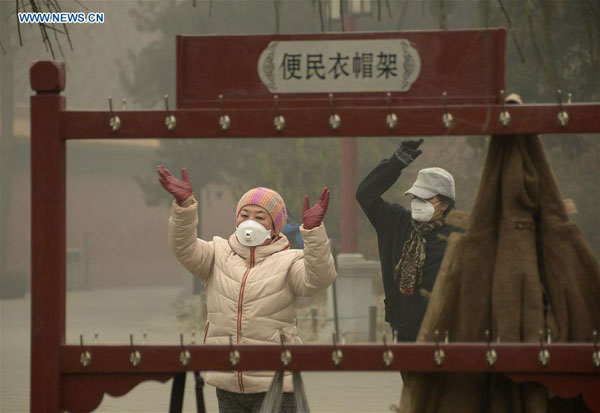
In the Chinese government's ongoing fight to try to clean up this country's air, a new focus is being being put on small-scale companies in an effort to get them onboard with reducing emissions.
Over the past few years, the central government has been focusing its air pollution fight on major polluters, with numerous steel factories and heavy-polluting power generators either shut down or moved away from major centers, such as Beijing.
However, with the first-ever smog 'red-alerts' issued in Beijing and other parts of the capital region this month, the Ministry of Environmental Protection has begun paying more attention to small-scale pollution emitters.
But Fu Chengyu, vice-Chair of the International Center for Economic and Technical Exchange, says a one-off crackdown on small-scale polluters won't be enough.
"The major problem doesn't lie with the companies themselves, with the loose regulations imposed by local governments. If we had taken the problem seriously, the air pollution today wouldn't have been nearly as bad as it is now. I, personally, think now is a great opportunity to resolve the environmental problems that are scourging China. At the same time, this will contribute to helping the fight against pollution in a global context."
China is the world's largest emitter of Greenhouse Gases, pumping out around 30-percent of all the world's CO2 emissions.
To counter this, the Chinese government has set a goal of having this country's emissions peak by 2030.
This will require emission cuts of at least 40-percent for every unit of GDP over the next 5-years.
Zhang Yanke is the vice-General Manager of Huaneng Group, one of China's leading state-run electricity producers.
He says the government's goals will require foresight.
"In terms of power generation, more needs to be done to develop clean energy and increase the proportion of clean energy use. If the government wants to make sure the carbon emissions peak by 2030, it has to increase its push toward more low-carbon energy production."
Steps are being taken in the hear-and-now to cope with polluters.
Among them more precise monitoring of pollution trends to know where they're coming from, as well as the creation of unified pollution standards.
Zeng Lixin with the International Center for Economic and Technical Exchange says the move will make things more equitable.
"By setting a unified standard for pollutant discharge for all companies, as well as more 3rd party monitoring, will eliminate any bias, as every company would be working under the same rules. Whoever pollutes the environment has to pay themselves."
Despite the short-term strategies, officials with the Ministry of Environmental Protection are warning it may take at least 10 to 15-years to clean up China's air, given balance required between clean air and economic growth.





